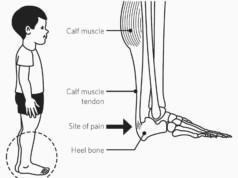Stress is common in the workplace. That’s what everyone says and they are right. Does that mean that you should welcome stress as your daily companion? Absolutely not.
American Psychological Association states that chronic stress has numerous negative effects on your health including long-term problems for heart and blood vessels.
Accepting stress as a part of your work can hurt both your physical and mental health. You don’t have the power to eliminate stressful situation and you need to accept that. What you do have power over is your perception and how you act in those moments.
Psychologists are consistently working on giving people useful advice on how to cope with stress. Knowing the negative impacts of this emotion, it is no wonder that many experts in the field of psychology are focused on identifying stress management techniques.
If you are ready to learn how to manage stress in the workplace, consider the following psychology tips.
Identify the Stressors
Stress can come from numerous sources: feeling detached from significant people, work overload, health issues or the need to pay for housing, especially if you are a student… We all have different triggers. One of the crucial steps you need to take is to track your stressors.
Keep a journal for a week and write down every situation that causes you stress. No matter whether the emotion is mild or strong write it down.
Identifying stressful situations will help you take the right actions. You might notice that some situations caused you to stress without a strong reason. Recognize situations that you can easily avoid.
Looking back on your stressors will give you a more objective perspective on your current limits.
Stay Away from Toxic Environment
Gossip and negativity shouldn’t be a normal work environment. While you can’t make negative people disappear (unfortunately) you can remove yourself from their presence.
Psy.D. Sherrie Bourg Carter stated for Psychology Today that “many health-conscious people don’t realize that the quality of their relationships can be just as toxic to their health as fast food.” Toxic behaviors can also come in the form of negative self-talk, self-criticism, playing the victim, and similar.
If you are the source of toxic emotions, give your best effort to stop those thoughts as soon as the first one appears. However, if the problem is in others keep your distance from those people as much as you can. Don’t gossip and only speak to those people about work tasks.
Amanda Hall, a CEO at RatedByStudents, a company that provides insights into websites ratings shared her important life realization, “Life is too short to make toxic behaviors a part of our daily environment.”
Get Your Body Moving
How you treat your body and mind outside of work will reflect on your stress management skills in the workplace. Ensure that you give your body a boost of endorphin.
Make time for some sort of physical movement when you finish work. This also relates to all of your remote workers. Due to the COVID-19 pandemic, many people have to work from home. Working from home can push you further away from fresh air and bodily movements. You shouldn’t let this happen.
Decide on physical activity that you enjoy the most and practice it regularly. That means at least every other day.
Focus on Your Breath
Breathing exercises can reduce tension, relieve stress, and help you relax. The most common breathing exercise is deep breathing. Deep, mindful breaths can do wonders in your pursuit of stress management.
Mindful breathing will teach you to quiet your mind and decrease the intensity of your emotions. A simple technique like deep breathing can be practiced at any time and in any place.
Remote workers can indulge in longer breathing exercises but even at the office, you can spare a minute to focus solely on your breath.
Jeremy Penman, a UX designer has opened up about how breathing has changed his stress level at work. “I was mind-blown when I realized that something as simple as paying attention to my breath can reduce stress. Whenever I’m in a stressful situation I just redirect my focus to my breathing. It’s unbelievable how much this helps,” said Jeremy.
Detach Your Mind from Work
Another common difficulty (especially for remote workers) is shutting down your work thoughts when you clock out. If you bury your mind with work-related problems your stress levels can rise to the point of anxiety.
People who are less capable of distancing themselves from work will also suffer from sleep disruption. The solution lies in psychological detachment.
Psychological detachment is avoiding work-related thoughts, emotions, or actions after work. Managing to detach yourself mentally from work is an ability that demands persistence.
What can help you with this process is consciously acknowledging the following thoughts:
- I am more than my job.
- My workday is over.
- Let the past be the past.
- I’m not paid to worry about work outside my working hours.
- I need my energy for people I love.
- I will not let work to have power over my whole life.
Final Thoughts
Work-related stress can be triggered by many sources. The negative thoughts are patiently waiting for you to let them overwhelm your body but you shouldn’t let them win. In this battle against stress, the above-mention tips will be your most powerful weapon.












